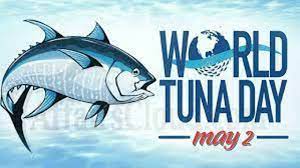
World Tuna Day 2023: Every year on May 2nd, World Tuna Day is commemorated to raise awareness about the importance of tuna fish and to promote sustainable fishing practices. Tuna is a popular fish species that is widely consumed around the world, and it plays a crucial role in the marine ecosystem. This anniversary represents the accomplishment of fishing communities, scientists, and environmentalists who worked together to protect tuna schools around the globe and build a model for sustainable fishing.
| Article and Schedule Quiz | Start Test! |
Here are some reasons why World Tuna Day is significant:
• Tuna is an important source of food: Tuna is a valuable source of protein and nutrients for millions of people around the world, particularly in coastal communities where fishing is a major industry.
• Tuna supports local economies: Tuna fishing and processing provide employment opportunities for thousands of people in many countries, particularly in the Pacific Islands, where tuna is a major export.
• Tuna is under threat: Overfishing and unsustainable fishing practices have put many tuna species at risk of extinction. World Tuna Day aims to raise awareness about the need to conserve tuna populations and promote sustainable fishing practices.
• Tuna plays a crucial role in the marine ecosystem: Tuna is a top predator in the ocean, and its existence aids in the regulation of smaller fish populations. Tuna also helps to maintain the balance of the ocean ecosystem, and its decline could have far-reaching consequences.
In summary, World Tuna Day is significant because it highlights the importance of tuna as a source of food and income for many people, while also raising awareness about the need to protect this valuable species and promote sustainable fishing practices.
World Tuna Day: History
Canned tuna has been a great ally in our pantries during the pandemic. But, regardless of the market exceptionalities caused by the pandemic, we cannot ignore that, for a long time, this product has been a victim of its nutritional success. Tuna is rich in Omega-3 fatty acids and also contains minerals, proteins, and vitamin B12.
As a result of the amazing qualities of tuna, the fish are threatened by overwhelming demand. According to the latest data, among the seven principal tuna species, 33.3 percent of the stocks are estimated to be fished at biologically unsustainable levels.
That is why in December 2016, the United Nations General Assembly voted to officially observe World Tuna Day. The move underlines the importance of conservation management to ensure that we have systems in place to prevent tuna stocks from crashing. Many countries depend heavily on tuna resources for food security and nutrition, economic development, employment, government revenue, livelihoods, culture, and recreation.